A Labor Day Speech / May 2024
Hi
and welcome to the written version of our Tiny Demolitions’ speech of May.
This piece will consider: labor, value and – yes? yes. – it will consider the soul.
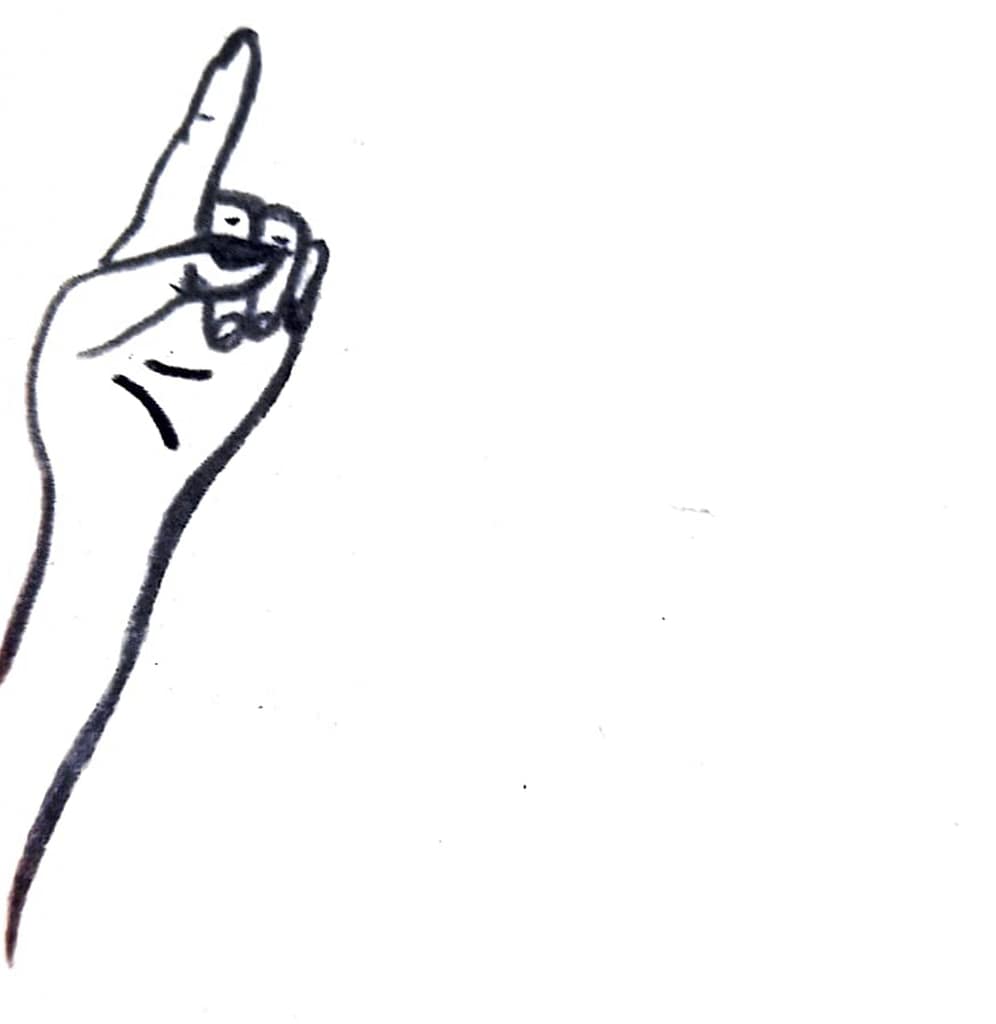
But first!
A sidenote on stories as they are talked about in these pages.
Tiny Demolitions sets out to deal with stories. Stories, not as epic plotlines, but as part of our tract of thought and feeling. We care about stories in the way they shape our horizons, the way they inform how we can exist, or, potentially, how we cannot. It is through stories that we can imagine – in a flicker! – a good life, a good person, a healthy family, hard work.
Really, all of this shit.
We believe there is work to be done in understanding which narratives shape us, and how, to not take them for granted or as natural1, and to continually inform them with our lived experience, and the lived experience of others whom we can – yes, oh, yes ! – learn to attend to.
CHAPTER ONE:
the Soul and Hesitation
I hesitate in writing
and speaking about the soul,
the very word
seems to come with a warning.
And I think this hesitation
is two-fold.
FOLD 1: TEMPORALITY
I am talking to you
from the month of May.
On May the First
we had the international celebration
of Labor Day
de Dag van de Arbeid
which can remind us, at its best
to think about tangible, pressing issues like:
working conditions
care as labor
and the ongoing exploitation
and destruction of huge swaths
of the living world.
To move our thoughts, then,
– to thinking about the – eh –
soul
something, seemingly, out of this world
something unclear
something
my parents had already classified
as catholic bullshit
from which they had rightfully
rid themselves
– well, this can cause some hesitation.
Nevertheless, I want to go on
precisely because I think
the story of the soul got lost,
when we might need it.
That it was made
intangible
and elusive
out of this world
and so hard to even consider
when at the same time
through the perpetual
crises of our capitalist
world order
– sometimes it feels
like my soul hurts.
How could it not?
So I am writing and speaking about the soul
and it would give me great pleasure
if you could bear with me.
FOLD 2: DISCLAIMER – LOSING THE SOUL
I grew up
without a soul
– that is to say
without any concept
of a soul
and without any thought
about it.
My father,
born in 1948
in the small town of Lier, Belgium
had a teacher
at the age of 6,
and for each of his pupils
this teacher had put
a white piece of paper on the wall,
and on this piece of paper
he had drawn a heart.
Dit, kindjes, is jullie ziel
This, he said, is your soul.
And every time
they did something wrong
there would of course
be physical punishment
which was a given at the time,
but in addition
he would color
part of that white paper heart
black
to show the stain sins left2
on these 6-year old’s souls.

My parents grew up
undergoing weekly pastor’s preaches
filled with looming doom.
They connect de ziel, the soul,
to words like zielenheil
which implies salvation
and thereby also the alternative
of eternal burning.
They learned to connect de ziel
to lonely fears
in the dark,
hidden under their blankets.
Fears of the devil
lifting them from their beds
as they attempted to sleep,
their bodies vessels of sin
tiny, weak and fragile,
their young souls stained.
And all of this
they learned to shed –
as they grew up
when society
seemed to grow away from catholicism,
the influences of priests and devils waning.
And while their mothers
still went to church,
they learned to tell themselves
it wasn’t true
so they could sleep.
And the devil
would not come and get them.
And they were not filled with sin.
it wasn’t true – it wasn’t true – it wasn’t true.
They gradually left the soul
for what it was
and went on with their lives
and made some progeny
because ga en vermenigvuldig u,
go forth and multiply,
was part of “a good life”
and so I grew up
with parents who thought and felt
#parentsarepeople
but there were no stories
about a soul.
And you see
how this can lead
to some hesitation
– I do not wish the soul
of my parent’s childhood
upon anyone.
But that does not mean I want to give up on the soul altogether.
CHAPTER TWO:
Value and Labor
Waarde en Arbeid
Let me go back, briefly
to de Dag van de Arbeid
and with it to the concept of value.
I think what de Dag van de Arbeid
reminds us of mostly
is the “value” of labor
which needs reminding
because it is quite often
devalued, in terms of money
and paychecks that vary
from barely sufficient to non-existing.
And through this reminder
that labor is nonetheless valuable,
we are reminded
of the value
of those who do labor.
I understand the need
for continued and increased attention
to working circumstances
in a capitalist world
that drives on exploitation and extraction
and I support
all commemorations
of social action.
And yet,
there is something uneasy
about this celebration.
There is something uneasy
in the assumption,
that what is of value
is that which makes an economic contribution,
that which makes the world go round,
which is, and I quote Sophie Lewis3 here:
“nothing much to be proud of,
given the state of the world.”
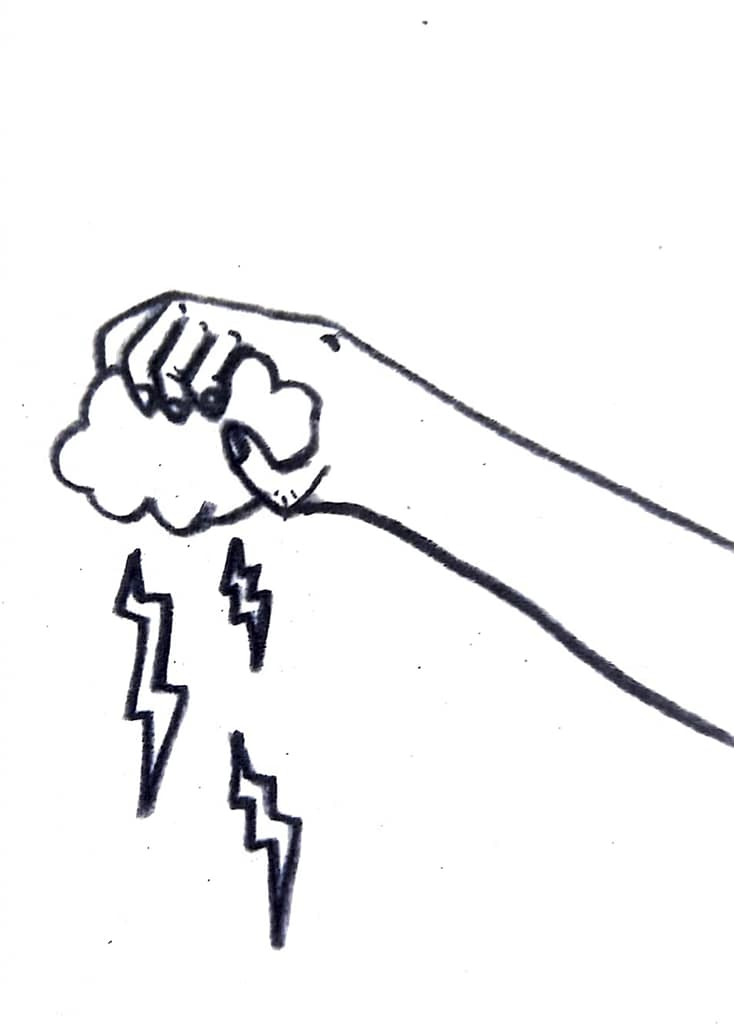
Moreover,
there is something sad
about this step in between
die tussenstap
– that we would only value
those who labor
through their labor
rather than
valuing people
for just – being alive
– acknowledging
that life going on
is valuable in itself.4
CHAPTER THREE:
The Unaffected Realm of The Family
– the Sorrow of Motherhood
This is the point
where I turn to my mother
who is the person
who took on
the re-productive labor
the never-ending feeding, washing,
playing and comforting5
on which I grew.
To say it unfaithfully with Karl Marx
She mixed her labor
Marx in Gilmore in Bhandar & Ziadah (ed.).
with my earth
and in so doing
changed me
and herself alike.
Kind of.6
She did this
without any breaks
and fully within the narrative
that the world was harsh
and home would be our refuge.
And I believed this
even though
my always busy mother
was haunted
by spells of depression
that later turned
into seemingly random
outbursts of rage.
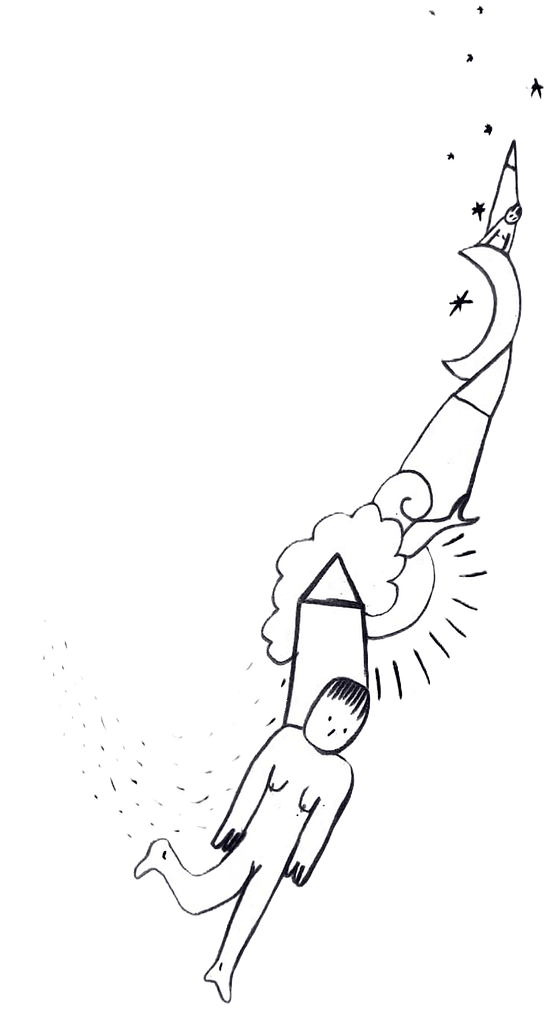
My mother believed
not in a soul
but in the sacred story
that through my children
I find happiness
Goddank heb ik jullie nog
thank God, I still have you,
even if the daily reality,
and experience,
the endless work of the house
and the built-in loneliness,
betrayed this story.
She had ingrained that this experience
did not hold knowledge
and that it didn’t matter
The very reasonable frames
with which she had modeled
her life
– a house, an income,
a family –
had been procured.
She was supposed to be safe.
Her sorrow
did not tell her anything about the world
– it only meant she had failed –
And added the layer of guilt
that kept her going
tired but endlessly
CHAPTER 4:
Frames that Matter
There are frames I had learned
to think with,
frames I thought mattered.
First and foremost
I wanted to be reasonable.
Reasonability was the only
way in which you would be taken seriously.
Religion was stupid,
again, we only did Reason
and this made us smart
or it made us at least smart-er
than others,
whom we could talk to
but not really listen,
because they were not
quite as reasonable as us.
Ethics were tricky
and only to be discussed
in material terms
– Marx, yes, Jesus, no,
Audre Lorde, who is that? –
And if you talked too much
about ethics
you would have to watch out
because the world
as it was
– and honey, you cannot change the world –
was organized
according to the principle of self-interest,
people care mainly for themselves
– so you better organize your life
to protect yourself
from the harm that comes
from the self-interest of others.
Being too kind, means you will lose
and you will not be safe
– and to understand
what it means to not be safe
just turn on the news,
or glance7
at the people who live in the streets.
Don’t look too close,
you need to learn to ignore
– just long enough
to understand that there is danger
and you need to be safe.
So get a house,
get a family
and get a job.
And you will be safe.
The life of my mother
did not make sense
according to these parameters.
The promised safety
seemed transformed
into daily torment,
and by the time I was a teenager
I knew very well
that my mother
did not enjoy life.
The status of the emotional framework
in all of this
was unclear.
I experienced emotional warmth
– yes
and in my family
there was a tendency towards kindness
– yes
But it sure had its limits.
I remember being a rather fierce child
and sometimes
getting the label
hysterical.
I think overall
anger was not appreciated
in particular for me and my mother
as we seemed to fall
on the girl-side of the family.
I still
don’t know how to do conflict.
The idea that emotions
could hold information
would have been met
with seriously raised eyebrows.
In this way, it seems
like there was still some catholic remnant8
of passions needing to be controlled
in order to grow
as a human being,
which now might not mean
be virtuous,
but rather, be functional.
And this view of emotions
which I would call
reluctant recognition
got tied to medicalization,
for many people in my family
suffered from depression
and other psychiatric disorders
So the general advice was
– beware of emotions
they are treacherous
and they might hurt you
so cultivate reason
and you might be safe
and know when to medicate.

And all of this
I learned
with its great focus
on Reason and Safety
and I was truly great
at being very reasonable
but I did not know when to medicate
and crashed very reasonably
into depression at the age of 20.
Brace yourself: we are getting towards the soul.
CHAPTER 5:
We are getting towards the Soul
I had therapy, and medication
like so many people
living in Belgium today
and to this day
I am still on a daily dose of duloxetine
have been for about ten years
and as long as it helps me
to be alive to my fullest extent
I don’t plan to quit it.
I am not interested
in living my pure natural self
truly
I don’t think it even exists.
But up until recently
regardless of the emotional work
I did in therapy,
regardless
of the close analysis of my nuclear family
and the pharmaco-remedy
that restored my
neurotransmitter-balance,
I could still be haunted
by shame and guilt
and loneliness,
not as a response
to a particular situation,
but as an existential
layering of my experience
that resurfaced on a regular base.
What I am getting at
is that the frameworks I was brought up in
did not hold up
to take into account my lived experience
and it haunted me.
And this persisted
even when I was
quite well-read in feminism
in politics of social justice.
Even if I had learned to believe
and defend,
that my anger was a good thing,
which it is:

#angerangerroar
Hold on.
I don’t want to brush over this.
When the frameworks you have
the ways you think
about what matters
and what does not
when these frameworks
do not take you into account
– your lived experience
when they do not take into account
the lives of people you are close to
and whose wellbeing affects you
– then you might want to question
these frameworks,
and reading about feminism,
and social justice
can help you do that.
Let me be very clear here,
we are part of a world
in which not all lives are equally valued
in which many lives
are actively forgotten
and ignored.
It took me
a lot of reading, and listening
to understand that
when so many lives are ignored
in our accounts of history
as well as in our expectations
of daily life, of “a good life”9
this does not only
do active violence
to those who are ignored
it means these stories themselves
are based on ignorance.
Ignoring so many lives
harms our understanding of the world
and through it
it makes it harder
for everyone
to live.
I quote bell hooks,
I think I need to do that every time,
she points out
we live in “white-supremacist capitalist patriarchy”,
and that we need this heavy phrase
to keep reminding us of it.
That this is not a natural state
but that it has grown
through a shitload of violence
by states and corporations alike
effacing lives and experiences
communities and species.
Its continuation
is premised on ideologies
of separation and domination
which define our reality
and still run
through our bodies, houses and streets.
This is knowledge that needs to be taught.
It is knowledge
that has brought me a lot,
not in the least
the solid ground
that my experiences
are connected to the experiences of others
– that I am not alone
– and that when I struggle
to live in the conditions
set out by white-supremacist, capitalist, patriarchy,
my struggle does not mean
failure
It does not mean
I am doing something wrong.
This isn’t true.
it isn’t true – it isn’t true – it isn’t true.
I think what changed
for me to feel less guilty
less inadequate
on an existential level
is not that I gained knowledge about the world
though knowledge is important
– I did not analyze my guilt away
and in all its overwhelming misery
knowledge of the world,
can be a straight line to burn-out.
What will you do with all this knowledge?
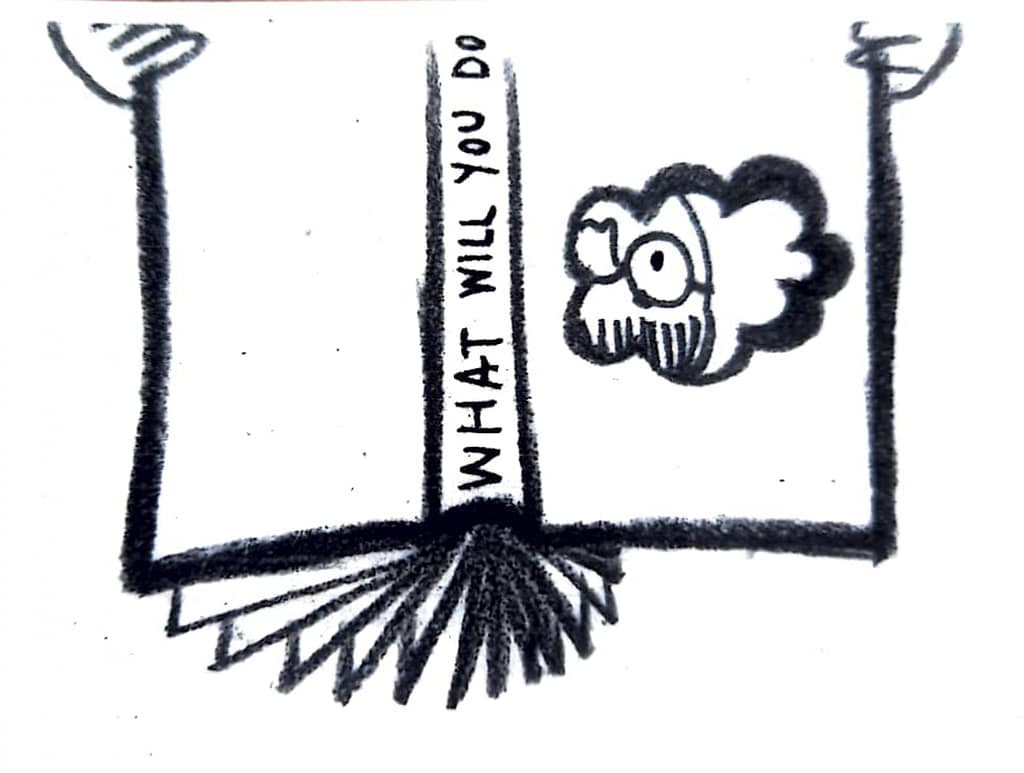
And this is the point
where something changed.
Something changed
in my position towards knowledge
that allows me to acknowledge sorrow
even when I am unable to fix it.
I will not fix it.
I am not outside of it.
And I think this helped my soul.
It helped me to stop running and crashing
– running had never been my strength, anyway.
It helped me to regain loving relations
with the people I am connected to.
In an interview,
Sylvia Federici said:
through my engagement in the women’s movement,
I regained my mother.10
I have a similar experience
of regaining my mother
not as a flawed representation of iconic motherhood
but as a person
close to me
in the world I am part of.
I think my change in position
resembles
something Veena Das has described.
She is an anthropologist
and she talks about the difference
between ‘knowing’ and ‘acknowledging’.11
Knowing has an assumption
to resolve something
and be done with it.
Acknowledgement
requires something else,
an ongoingness,
a relationship,
“a repeated attention
to the most ordinary of objects and events.”
I think this slow, gradual shift
allowed me
– don’t hesitate –
it allowed me
to be part of the world
to be affected by it
and to take that seriously.
When my mother
experienced the sorrow
of the lonely construction of motherhood
– and blamed it on herself
I think she missed a frame of reference
that could connect
her back to history
and the living world
– and it hurt her soul
And as I am permeable
and built with her labor
I feel this pain too.
In what I have told you today
I wanted to talk about the soul
as an intervention
in a logic of self-containment
that does not exist.
The soul
in this story
refuses the idea
that anyone could thrive
on the principle of self-interest
as it does not acknowledge
that anything like
enclosed self-interest
could exist:
there is no self
served by separation.
To attend to the self
and to attend to the world
are interlocking projects12
and attention for our primary caretakers
is somewhere in the mix.
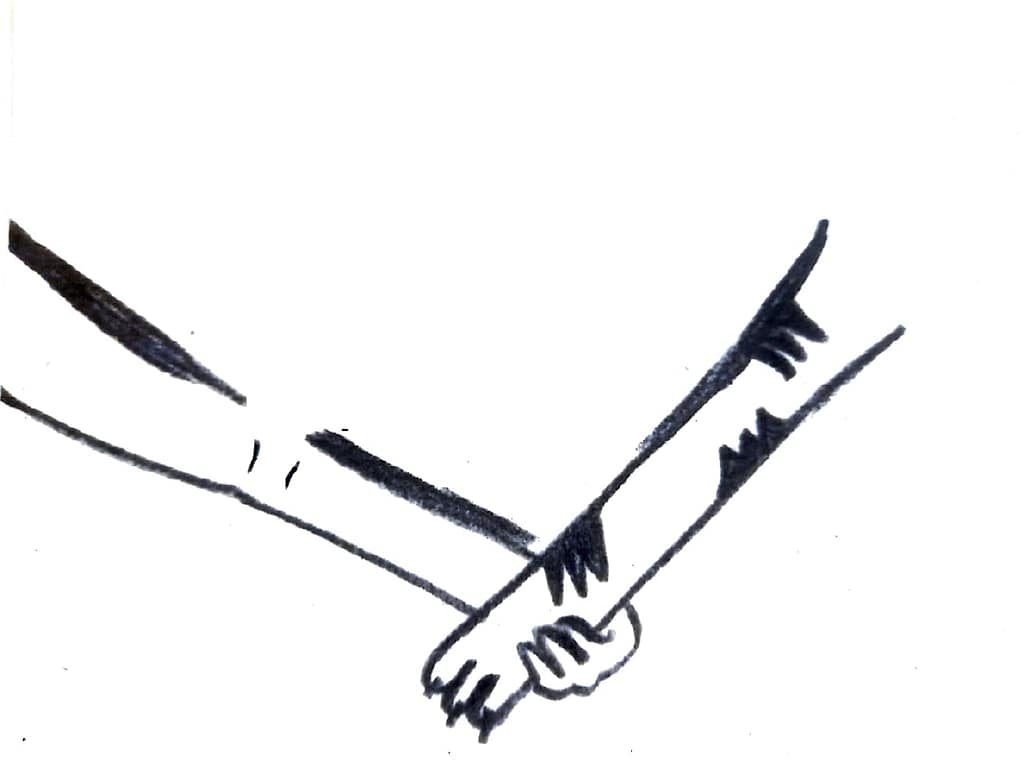
I am so glad we made it here.
Thank you for reading
and bearing with my thoughts
incomplete as they are.
ADDENDUM
I know this speech draws heavily on the nuclear family. I hope it is clear, I do not want to celebrate this structure. The way I see it now, is that the nuclear family and its story are very much part of the problem. The promise they entail, of emotional well-being or of protection against loneliness, are betrayed by most people’s daily experience, not in the least that of women and children. I want to acknowledge these experiences – not as something to solve instantly, I don’t want you to blindly abandon the people you care for. But I do think there is an awareness, a sensibility, or a consciousness – you see how my vocabulary still rambles – that matters. It matters for your soul, which is entrenched in the world. Since the nuclear family is the structure I have always lived, I take its sorrows seriously, and hope that we can – yes, oh, yes! – train sensibilities together. So
that different possibilities can emerge.13
- First Footnote!
“But was there ever any domination which did not appear natural to those who possessed it?” In The Patriarchs, Angela Saini opens the first chapter ‘Domination’ with this quote by John Stuart Mill and Harriet Taylor Mill. It is a quote from 1869! Just to get us started. At the end of the chapter, Saini writes:
When we settle for resting the case for ‘patriarchy’ on something as simple as ‘biological difference’, when the evidence points to a reality that is far more complex and contingent, we lose the capacity to see just how precarious it might be. We stop asking how it works, or the ways it’s being reinvented. We don’t dissect the circumstances that might help us undermine its ideological power right now. The most dangerous part of any form of oppression is that it can make people believe there are no alternatives.
I add the following sentence by Amade M’charek, quoted in Black Afterlives Matter (essay by Ruha Benjamin). It does not express the exact same thing, but furthers the thought, and has been on my mind a lot: “The factness of facts depends on their ability to disconnect themselves from the practices that helped produced them.”
Ha, what great phrasing!
↩︎ - Here are two stories, relating to this stained-soul-heart, tangling into the present.
First story:
A friend who went through the Dutch immigration machinery, told me a story about his stay in an azielzoekerscentrum (azc). To live there, is to live in uncertainty, and fear of being denied access to the country you have sought refuge in. In addition to this continuous incertainty, there was the threat of the black dot. It was said, that if you “misbehaved”, there would be a sanction in the form of a black dot on your file, i.e. your file would be marked, stained, and it would harm your chances of being allowed to live in the Netherlands.
Second story:
My daughter, who is now 6, has no paper hearts on the walls in her classroom. However, as it is a school in which many kids are marked as children with ‘behavioral issues’, for each child, there is a traffic light – green, orange, red. Every day, kids start on the green light. When they misbehave, they go to orange. If the ‘bad behavior’ continues, they go to red. This does not mean eternal damnation of the soul – but they will not get a sticker that they. The stories have shifted, but the mechanism of punishment and rewards is still broadly used “for the child’s own good”.
↩︎ - From: Sophie Lewis, Feminism Against Families: Full Surrogacy Now.
The same argument is there made in regards to motherhood, which can sometimes be valued on the premise that mothers make an economic contribution to society, by supplying labor force / which they do.
The aim is not to praise gestation as an essential use-value. […] frankly, the fact that gestation “makes an economic contribution” or “makes the world go round” is nothing much to be proud of, given the state of the world. (I’m more impressed by contributions gestating might make to this world’s destruction.) No, making the labor of social reproduction visible – again, we Marxist feminists cannot stress this enough – is very much not an end in itself.
If you wonder about this “social reproduction”, see footnote 5!
↩︎ - I attended a public talk organized with Sylvia Federici and Territorio Doméstico. Territorio Domestico is a collective space for struggle and empowerment of women, mostly migrants and domestic and care workers. It was a great evening. What they all reminded us of, with great eloquence and joy, is that domestic work and care work is work that supports life, which stands in stark opposition to the industry of war, to prisons, to police aggression, and polluting, soil-depleting industries. To put value in what supports life – is not an abstract thing, and it is definitely not commonly held knowledge and practice among those who create policies and execute power.
↩︎ - Social reproduction and reproductive labor refer to all the work that goes into reproducing the labor force, making people productive members of a capitalist society. This involves a lot of care work and domestic work, but also an emotional aspect. Consider the following passage from Federici’s Wages Against Housework, as it goes into celebrating ‘Mother’s Day’. Great fun!
[…] from the viewpoint of work we can ask not one wage but many wages, because we have been forced into many jobs at once. We are housemaids, prostitutes, nurses, shrinks; this is the essence of the ‘heroic’ spouse who is celebrated on ‘Mother’s Day’. We say: stop celebrating our exploitation, our supposed heroism. From now on we want money for each moment of it, so that we can refuse some of it and eventually-all-of it
It is an article from 1975, which called for women to organize, which they did (try and google ‘wages for housework’).
In They Call it Love, Alma Gotby explores the emotional aspect of reproductive labor. From the introduction:
This book explores the construction of emotional needs and the material and subjective organization of labour that is necessary to meet them. […] Emotional reproduction includes the forms of work that go into maintaining people’s emotional wellbeing and their ability and willingness to continue to engage in capitalist productive labor.
↩︎ - Disclaimer: I never read Marx.
This is an altered rendering of an indirect quote by Ruth Wilson Gilmore in an interview in Revolutionary Feminisms ( Brenna Bhandar and Rafeef Ziadah). It goes: “One of the formulations that I always found very beautiful is where he talks about how we mix our labour with the earth, and in so doing we change the external world and change our own nature. I think that’s a really beautiful thing. I also think it’s true.”
I agree. I also think it’s true and beautiful. And you see how my rendering is really very unfaithful, even to this. I added this motherhood-thing, reminding me also of this poem by Hugo Claus ‘De Moeder’, and I would not take too much advise from Claus on family bonds, but it opens with this phrase:
“Ik ben niet, ik ben niet dan in uw aarde.” or: “I am not, I am only in your earth.” I do think it is a beautiful poem.
↩︎ - On the organization of safe spaces and wasteland in the late 20th C. I read Feminism and the Anthropocene by Anna Tsing and Paula Ebron.
This article taught me a lot. Its content is still reverberating in my thoughts.
A fragment:
We explore how separations between “security” and “wasteland” structured postwar growth, giving shape to Cold War expansion. The dream of safe spaces from enemies and toxins (however impossible such safety) justified the classification of other spaces, with their resident people, flora, and fauna, as expendable. […] the regime of separation between safety and waste spaces was made through mobilizing race and gender. White nuclear families anchored imagined “safety” while communities of color were made available for sacrifice. (663)
At the least, I hope this works against the idea of the “natural,
nuclear family”. This article helps to make the politics of this story tangible, historically situated.
↩︎ - A friend reminded me that this thought goes back way further, can be tied at least into Antiquity, and this seems to me true, and reminded me of an article by Simona Forti ‘New Demons: Rethinking Power and Evil Today’, which I think might bring you to a more substantial exploration of the matter.
↩︎ - In the introduction of They Call it Love Alma Gotby writes:
Emotional reproduction creates a feeling of investment in the world as it is. We have emotional attachments to a particular notion of the good life – a normative way of life which seems to promise comfort and happiness. Our lives under capitalism are in many ways disappointing and continually create negative feelings such as stress, resentment, depression and loneliness. But we all have an attachment to particular ideas of what a good life should look like – one that often includes the very sources of harm. We often continue to aspire to these ideals of a good life, even when they continually let us down.
↩︎ - This is drawn from the interview Federici gave in the book Revolutionary Feminisms (Bhandar and Ziadah)
↩︎ - Veena Das. From the introduction to Life and Words: Violence and the Descent into the Ordinary. From the section “Voice and the everyday” (p. 6-7)
[…] the question is not about knowing (at least in the picture of knowing that much of modern philosophy has propagated with its underlying assumption about being able to solve the problem of what it is to know), but of acknowledging. My acknowledgment of the other is not something that I can do once and then be done with it. The suspicion of the ordinary seems to me to be rooted in the fact that relationships require a repeated attention to the most ordinary of objects and events, but our theoretical impulse is often to think of agency in terms of escaping the ordinary rather than as descent into it.
↩︎ - Leanne Betasamosake Simpson. Again from an interview in the book Revolutionary Feminisms (Bhandar and Ziadah). Leanne Betasamosake Simpson is an Indigenous (Michi Saagiig Nishnaabeg) artist, writer and scholar. Here she describes a concept of freedom rooted in Nishnaabeg intelligence, knowledge and practice. A sort of ‘relational or grounded freedom’. (I think grounded is a very good term. )
A sort of freedom that is an individual and collective practice, designed to promote the well-being and self-determination of both the individual and the communal as interlocking projects.
↩︎ - Ruth Wilson Gilmore in Revolutionary Feminisms (Bhandar and Ziadah)
So, consciousness, and conscience-isation, which is to say, to translate that word from Portuguese to English: awareness is not just a matter of information; it’s not a matter of facts, but of developing and pursuing things through a sensibility that shows a different possibility can emerge.
↩︎